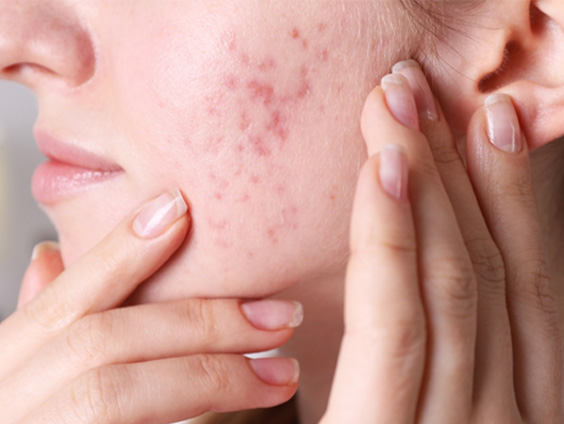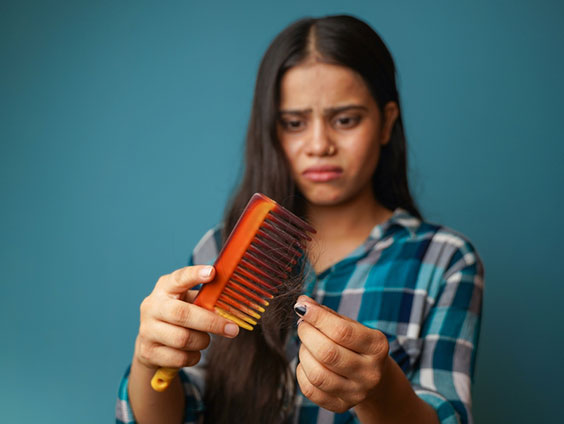What is acne?
What are the causes of acne?
Various factors can trigger acne including:
- Genetic factors: Those having family history of acne or scarring are more susceptible.
- Hormonal factors: These include premenstrual flare, pregnancy or post-partum acne, PCOS (Polycystic Ovarian Syndrome), thyroid disorders, adrenal disorders and others.
- Medications: Certain medications like hormonal pills, corticosteroids, psychiatric medications can trigger acne
- Dietary factors: Excess intake of diary products, refined sugar, refined flour and other foods with high glycemic index (foods with greater impact on blood sugar levels) can trigger acne
- Skin care/cosmetic products: Use of occlusive (which tend to clog the pores) products, oily and greasy products, layering of make up products, aggressive massages or scrubbing can cause flare up of acne.
- Stress: Psychological stress or poor sleep cycle can trigger acne
- Environmental factors: High humidity, pollution, exposure to certain chemicals in industrial settings or excess sunlight exposure can exacerbate acne
- Mechanical factors: Pressure from backpacks, headbands, helmets, tight occlusive clothing etc. can trigger face or body acne accordingly.
Which face wash/soap should I use for face acne/pimples?
Should I use sunscreen if I have acne?
Why do I keep getting acne/have acne prone skin?
How do I get rid of acne marks/scars?
Which creams/gels can I use for facial acne?
Treatment of facial acne includes a combination of skin care, a healthy lifestyle, medications (creams/gels and/or oral tablets/capsules) and procedural treatments. Thorough assessment of skin type is prudent to choose the right skincare and the treatment options. A good skin care regimen not only helps maintain the skin barrier but also prevents possible adverse effects like burning, irritation, stinging and rashes from the anti-acne gels or creams. There are many anti-acne creams or gels available in the market such as those containing salicylic acid, clindamycin, benzoyl peroxide, niacinamide, retinoids etc. One should refrain from using any such products on their own to prevent any inadvertent side-effects. The choice and strength of anti-acne formulation to be used depend on several factors such as skin type, type of acne, concomitant medications, job profile, daily schedule and so on.


